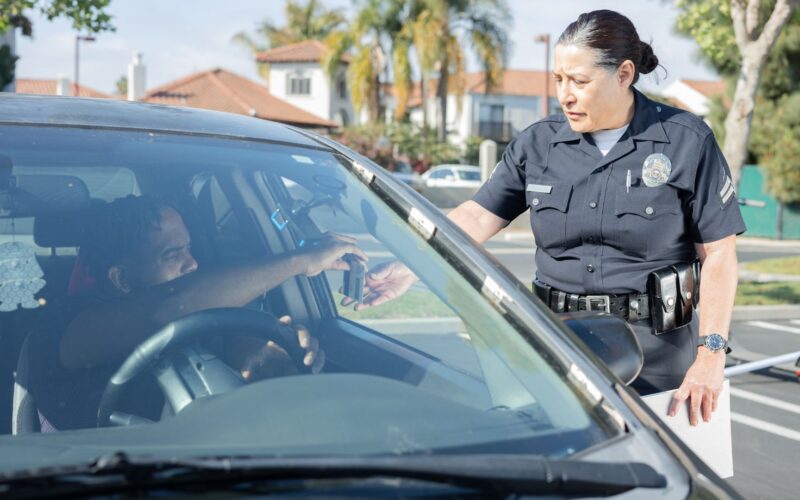In law enforcement, the question of can police search your car without a warrant is a matter of legal scrutiny and public interest.
Understanding the nuances of this issue is paramount for protecting individual rights and ensuring compliance with constitutional principles.
In this comprehensive guide, we’ll explore the intricacies of when and how police can conduct searches of vehicles without obtaining a warrant.
Can Police Search Your Car without a Warrant?
Yes, The police can search your car without a warrant if they have probable cause to believe that it contains evidence of a crime or contraband. Additionally, consent from the driver or occupants of the vehicle can waive the requirement for a warrant.
There are also other exceptions to the warrant requirement, such as searches incident to arrest or in situations where officer safety is at risk.
In addition to probable cause and consent, police may conduct a warrantless search of your car under certain circumstances, such as:
Search Incident to Arrest (SITA)
When a person is lawfully arrested, police are permitted to search the arrestee and the immediate area within their control, which often includes the passenger compartment of their vehicle.
The rationale behind this exception is to ensure officer safety and prevent the destruction of evidence. Since an arrested individual may have access to weapons or could attempt to destroy evidence, searching without a warrant is deemed necessary to maintain law enforcement’s safety and preserve potential evidence related to the arrest.
Plain View Doctrine
Under the Plain View Doctrine, if a law enforcement officer observes illegal items or evidence in plain view from outside the vehicle, they may search without a warrant.
This applies to situations where the officer has a lawful right to be in the location where the observation occurs, and the incriminating nature of the items is immediately recognizable. For example, if an officer sees drugs or a weapon on the seat of a parked car through the window, they may proceed with a search without obtaining a warrant first.
Exigent Circumstances:
Exigent circumstances refer to situations where there is an urgent need for action to prevent imminent danger or preserve evidence. In such cases, police may conduct a warrantless search if waiting to obtain a warrant would result in harm to individuals or the destruction of evidence.
For instance, if an officer hears screams for help coming from inside a vehicle or witnesses someone attempting to dispose of evidence, they may bypass the warrant requirement to address the immediate threat or prevent the destruction of evidence.
Inventory Searches
When a vehicle is lawfully impounded, such as in cases of traffic violations, expired registration, or other lawful reasons, police may conduct an inventory search of the vehicle’s contents.
The purpose of an inventory search is not to gather evidence for prosecution but to document and safeguard the items in the vehicle, protecting the owner’s property and ensuring accountability for its contents while in police custody. Inventory searches are typically conducted according to standardized procedures and may include recording the items found and their condition.
It’s essential to emphasize that while these exceptions allow police to conduct warrantless searches under specific circumstances, they must still operate within constitutional boundaries.
Any search conducted without a warrant must be justified by one of these recognized exceptions, and law enforcement officers must respect individuals’ rights throughout the process. If a search is found to be unlawful, the evidence obtained may be suppressed in court, potentially leading to the dismissal of charges against the defendant.
Understanding The Fourth Amendment
The Fourth Amendment to the United States Constitution stands as a cornerstone of American civil liberties, providing a vital shield against unjustified government intrusion into the lives of individuals.
Enshrined within this constitutional provision is the principle that every person has the right to be secure in their persons, houses, papers, and effects against unreasonable searches and seizures. At the heart of the Fourth Amendment lies the recognition that privacy is a fundamental human right deserving of robust protection against unwarranted government intrusion.
Central to the operation of the Fourth Amendment is the requirement that law enforcement officers obtain a warrant before searching, except in certain well-defined circumstances.
This warrant must be issued by a neutral and detached magistrate or judge and supported by probable cause, which refers to the existence of facts and circumstances that would lead a reasonable person to believe that a crime has been or is being committed, and that evidence of the crime can be found in the place to be searched.
By imposing this requirement, the Fourth Amendment aims to strike a delicate balance between the legitimate needs of law enforcement to investigate and prevent crime and the fundamental rights of individuals to be free from arbitrary government intrusion.
It serves as a bulwark against the potential abuse of power by law enforcement authorities and underscores the principle that the government is subject to the constraints of law in its dealings with citizens.
Exceptions to the Warrant Requirement
- Probable Cause: Law enforcement officers can search a vehicle without a warrant if they have probable cause to believe that it contains evidence of a crime or contraband. This may involve observing illegal items in plain view within the vehicle or detecting suspicious odors emanating from it. When officers have reasonable grounds to suspect that evidence of criminal activity is present, they may proceed with a search to gather relevant evidence.
- Consent: If a driver voluntarily consents to a search of their vehicle, law enforcement officers are not obligated to obtain a warrant. It’s crucial to emphasize that consent must be given freely and without coercion by the authorities. Individuals have the right to refuse consent, and any search conducted without valid consent may be deemed unconstitutional and subject to legal challenge.
- Search Incident to Arrest: Following a lawful arrest, police officers may search the vehicle and its occupants without a warrant. This type of search, known as a search incident to arrest, is conducted to ensure officer safety and prevent the destruction of evidence related to the arrest. It is permitted to protect law enforcement officers and preserve potential evidence relevant to the arrest. Such searches are limited to the areas within the immediate control of the arrestee, such as the passenger compartment of the vehicle.
- Exigent Circumstances: In situations where there is an urgent need to prevent imminent danger or protect evidence from being destroyed, law enforcement officers may conduct a warrantless search of a vehicle. Exigent circumstances may arise when there is a risk of harm to individuals or when there is a pressing need to preserve evidence before it can be tampered with or destroyed. Examples include situations where officers hear cries for help coming from inside the vehicle or witness someone attempting to dispose of evidence.
- Plain View Doctrine: Under the Plain View Doctrine, law enforcement officers may conduct a warrantless search of a vehicle if they observe illegal items or evidence in plain view from outside the vehicle. This exception applies when officers have a lawful right to be in the location where the observation occurs, and the incriminating nature of the items is immediately recognizable. For instance, if officers see drugs or weapons on the seat of a parked car through the window, they may proceed with a search without obtaining a warrant first.
- Inventory Searches: When a vehicle is lawfully impounded, such as in cases of traffic violations or arrests, law enforcement officers may conduct an inventory search of the vehicle’s contents. Inventory searches are conducted to document and safeguard the items in the vehicle, protecting the owner’s property and ensuring accountability for its contents while in police custody. These searches are typically conducted according to standardized procedures and may include recording the items found and their condition.
FAQs
1. Can police search my car during a routine traffic stop? Yes, police can search your car during a routine traffic stop if they have probable cause to believe that it contains evidence of a crime or contraband. However, they cannot search without reasonable suspicion or consent unless another exception to the warrant requirement applies.
2. What should I do if police ask to search my car? If police request to search your car, you have the right to refuse consent unless they have probable cause or another valid legal basis for the search. It’s essential to assert your rights calmly and clearly while avoiding any actions that could escalate the situation.
3. Can police search my car if they smell marijuana? If police detect the odor of marijuana emanating from your vehicle, they may have probable cause to search without a warrant. However, the legality of such searches can vary depending on state laws and the circumstances of the encounter. It’s advisable to consult with a legal expert if you have concerns about the legality of a search.
Conclusion
In conclusion, while the Fourth Amendment establishes a general rule requiring law enforcement officers to obtain a warrant before conducting searches, some exceptions allow police to search vehicles without a warrant under specific circumstances.
Understanding these exceptions and knowing your rights is essential for protecting your privacy and ensuring that law enforcement adheres to legal standards.
If you believe that your rights have been violated during a vehicle search, it’s advisable to seek guidance from a qualified legal professional to determine the appropriate course of action.
By being informed and assertive, individuals can safeguard their constitutional rights and uphold the principles of justice and fairness in law enforcement







